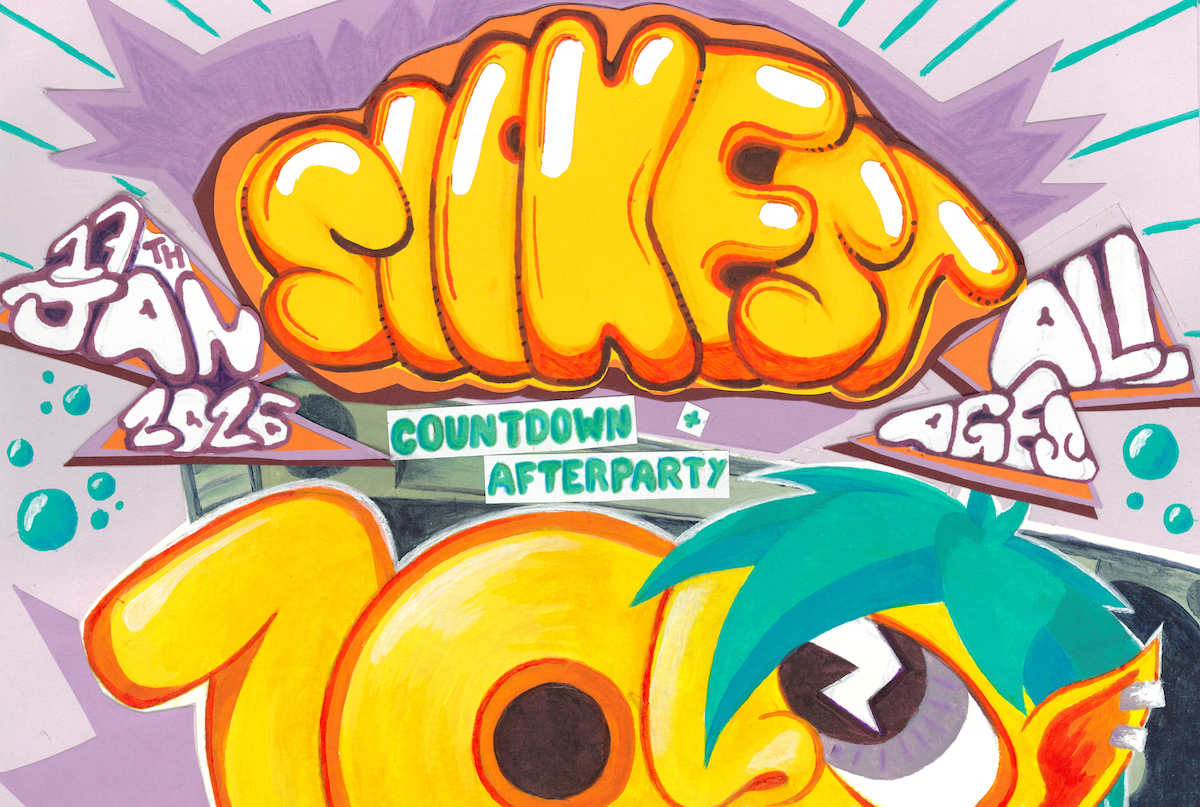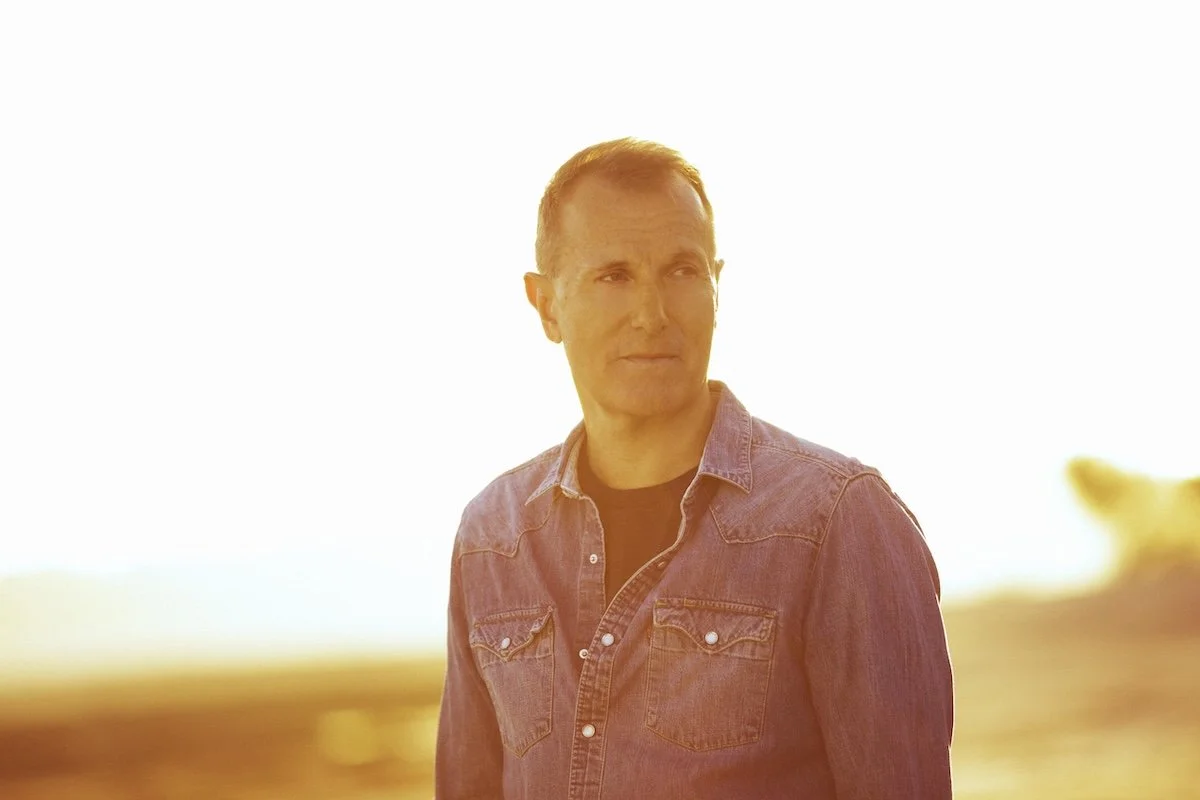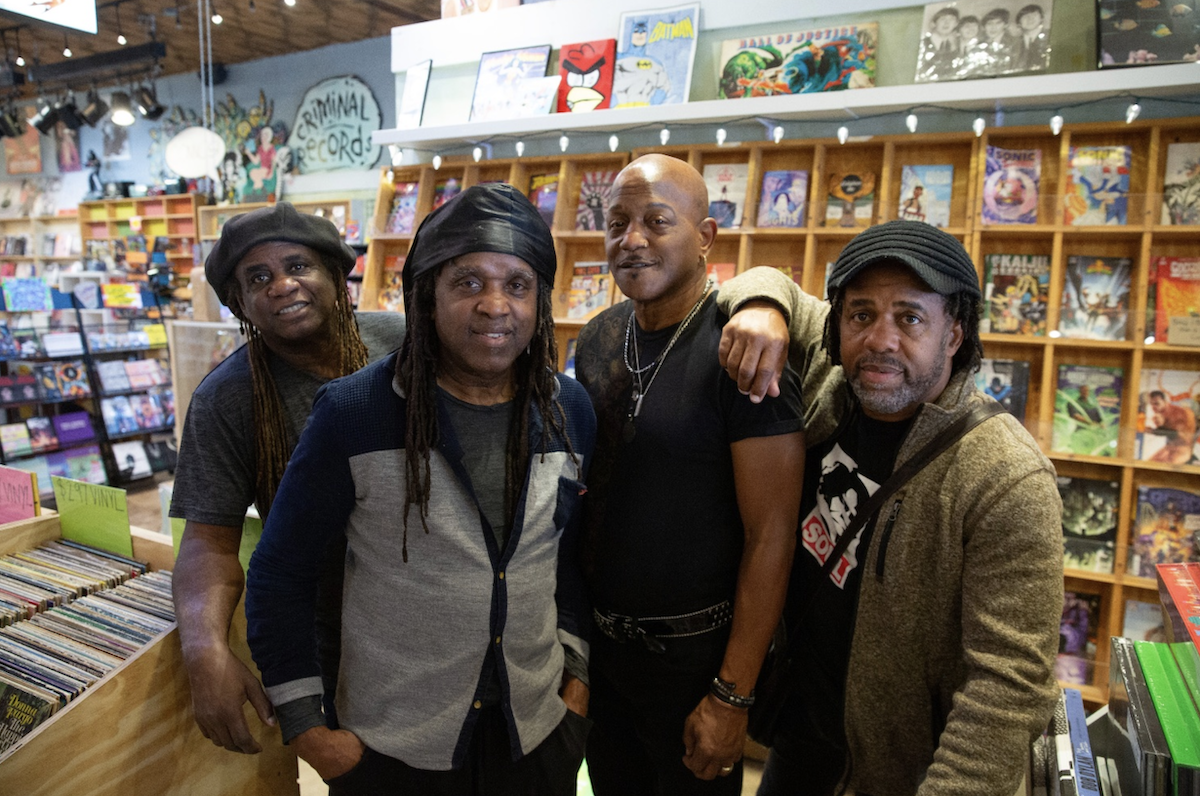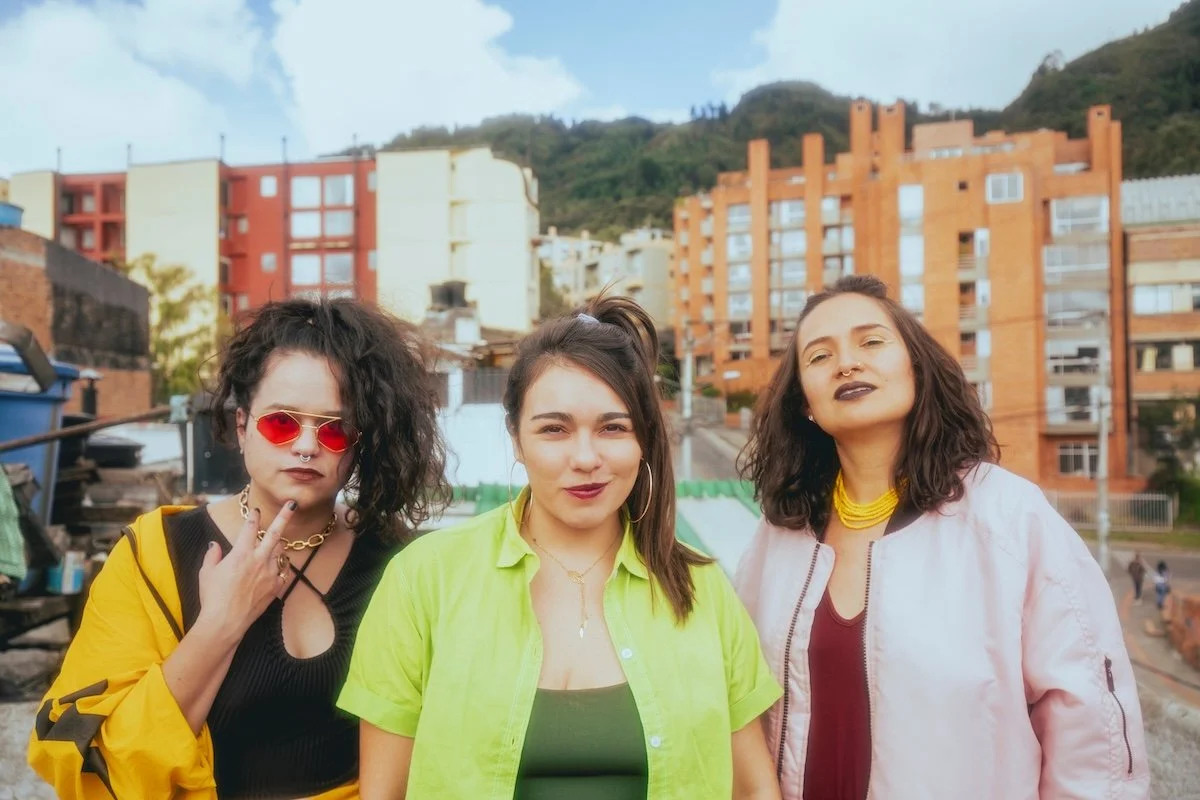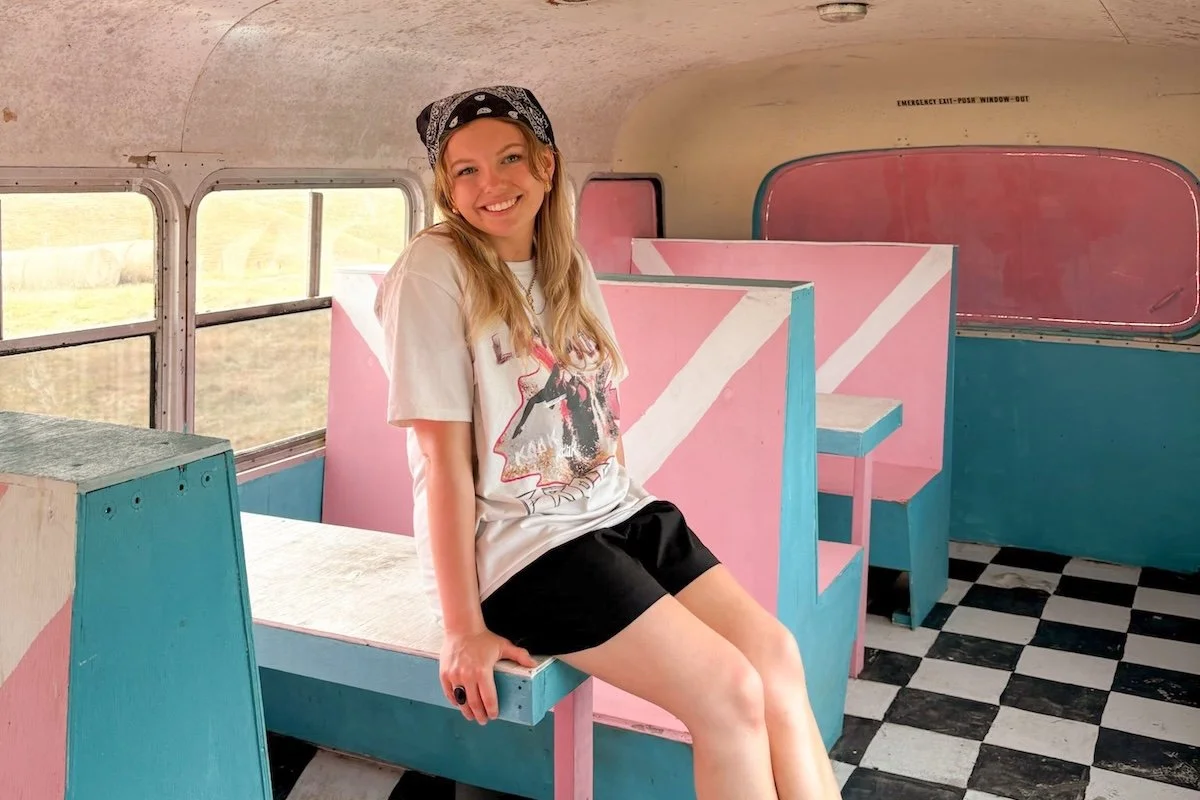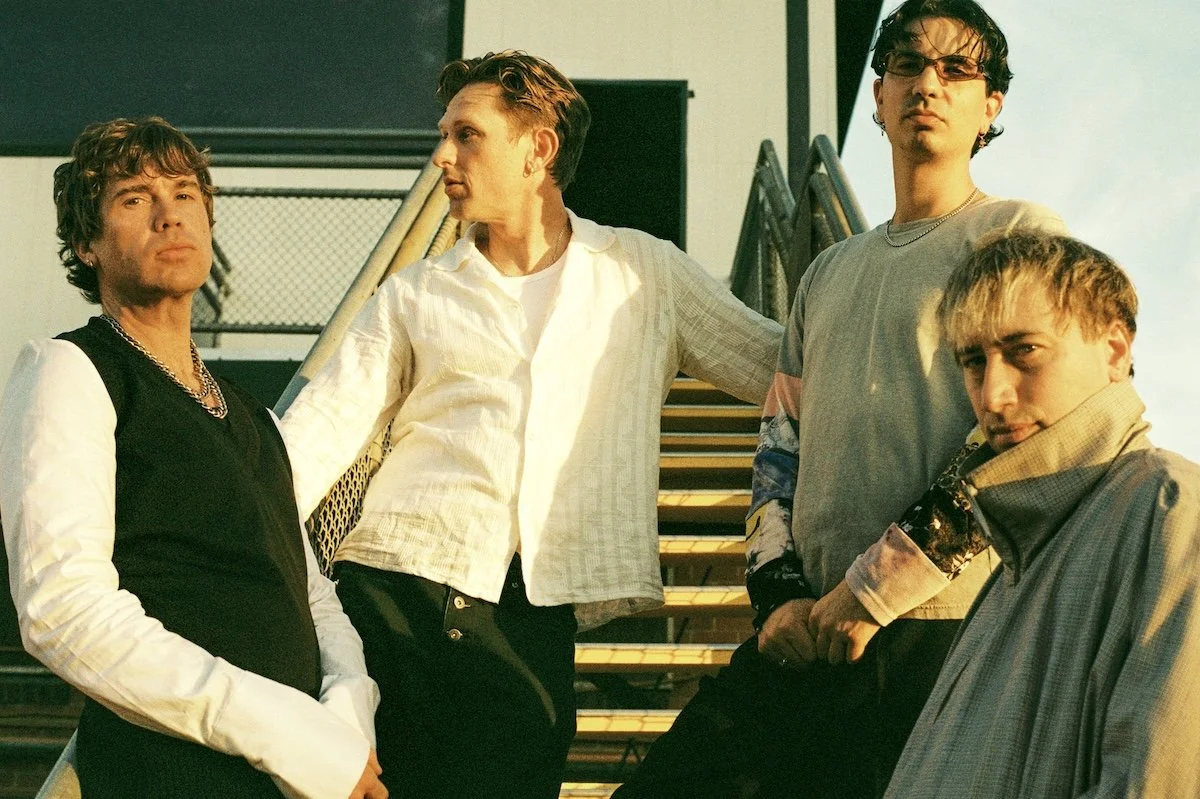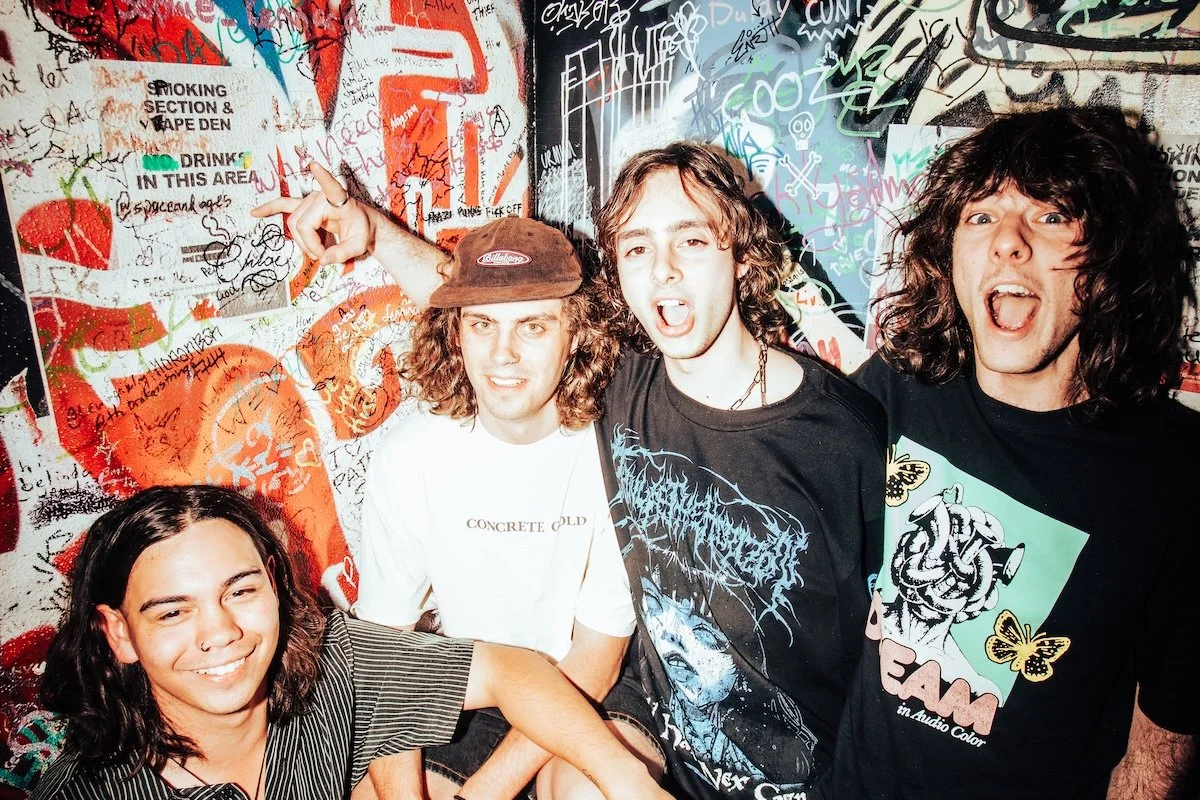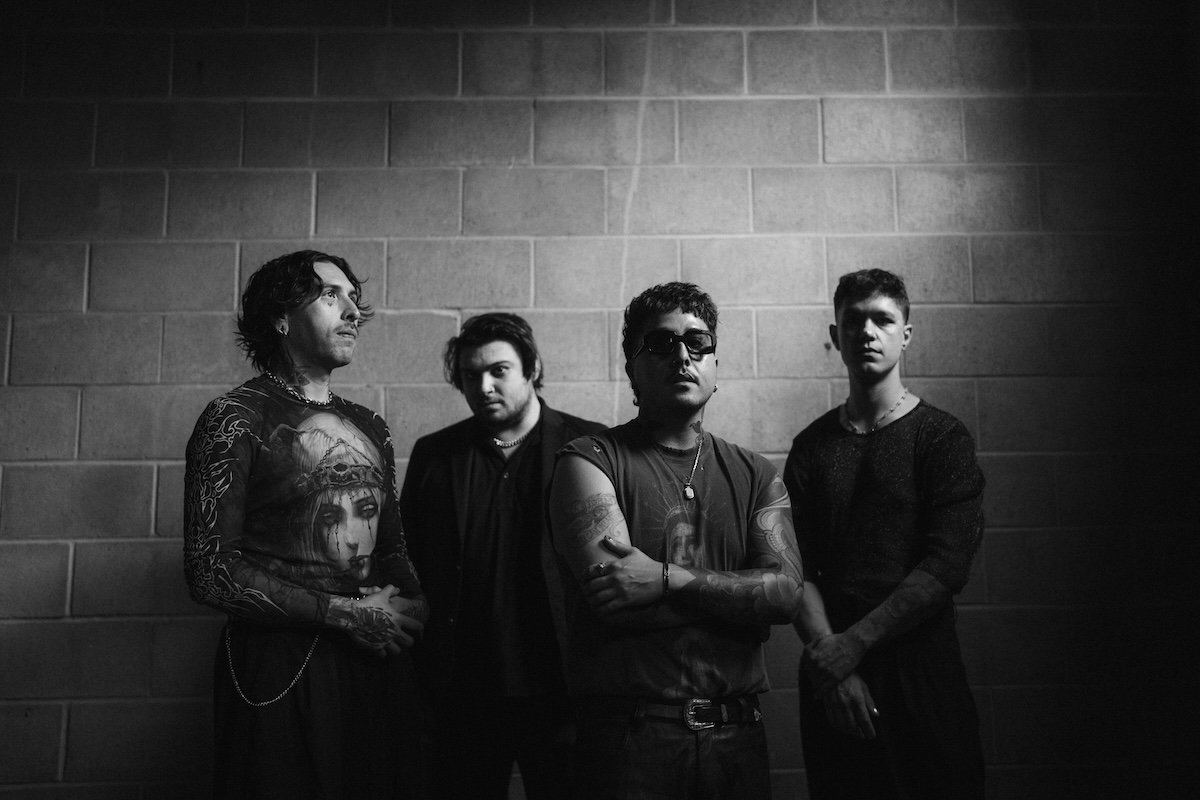Thelma Plum’s Homecoming
ARIA Award-winning artist Thelma Plum has a talent for turning thoughts and feelings into tributes to life’s big topics. Ahead of her Spin Off festival debut, the Gamilaraay star chats candidly about the vulnerability in her music, her love for her home city and what’s next.
Words by Zara Richards
Image supplied
Despite working with Paul McCartney, writing with Paul Kelly and amassing tens of millions of streams, Gamilaraay artist Thelma Plum isn’t driven by success. She’s driven to tell stories. Songwriting – and all that flows from it – is second nature to the star and something she’s been doing since she was a little girl.
“Mum reckons I was [singing] from when I was very young,” the 28-year-old tells The Note. “I can’t remember a time in my life when I haven’t felt this way about music. It’s hard to explain.” Thelma’s mum, Lieszel, has always been an avid music lover, taking her young daughter to Paul Kelly concerts. “I remember seeing him with Uncle Kev Carmody when I was about seven and I was like, ‘That’s what I want to do.’”
We’re speaking with Thelma a month before she’s due to arrive at Spin Off – her first time performing at Adelaide’s Splendour in the Grass sideshow festival. Throughout our 30-minute Zoom call, she’s bright, bubbly and brief, bouncing between topics with breezy honesty and often punctuating her opinions with a self-deprecating qualifier, ‘I don’t really know, though’.
While she softens the sting of her truths during our interview, Thelma’s ability to turn her thoughts, feelings and experiences into unapologetic lyrics is why the singer-songwriter has been so nationally adored for the last decade.
Thelma was 18 when she first received national recognition at the National Indigenous Music Awards (NIMA), winning Best New Talent following her debut EP Rosie in 2013. Several singles, industry respect and a loyal fanbase quickly followed. And then, in 2019, the singer dropped Better in Blak. The critically acclaimed album secured one ARIA award and five nominations the same year, cementing the singer’s star power. Today, it remains one of Australia’s most important records in the last decade. “I’m very happy [with] the work,” she says. “That record came after a very dark time. I’m proud that [Better in Blak] came from that.”
Thelma’s awaited return to the studio for her sophomore album was eclipsed by the pandemic. In 2020, she decided to leave London and paused the build of her second LP, heading home to Brisbane. This return led her to write Meanjin (2022), a love letter to the River City and the big brown snake that courses through its centre. Thelma left her hometown when she was only 16. “I remember being like, ‘I can’t wait to get out to the big smoke and work in Sydney. Now, I see Brisbane in a different way. It’s beautiful.”
In just under 20 minutes, the EP’s six tender tracks chart Thelma’s childhood, how the singer makes sense of her younger self and the experiences that shaped her. On ‘Baby Blue Bicycle’, the artist longs for the memories that piece together her time as a child, living in a Queenslander with her mum. Here, she recollects stories about her dog, Rosie, and neighbour Dot: ‘She used to tell me all the goss/ until one day, her granddaughter said she was ill / I cried a swimming pool of tears / when I found out she had died.’
“Dot was a very real person who I loved a lot,” Thelma says. “[Meanjin] was quite healing in a way. It [healed] my inner child to write about the things that happened when I was a kid.”
READ MORE: Missy Higgins’ Curtain Call
In part, the EP also allowed Thelma to break free from the cycle of writing, recording and touring. The fast-paced nature of the music industry means it’s often hard for artists to find a reason why they should step away from their hectic schedules. “Pre-pandemic, I wasn’t very good at being still in one place for too long,” she says. “I would make myself feel quite guilty if I had a week off.”
The self-condemnation Thelma feels is a by-product of ‘hustle culture’, a phenomenon that has served to re-work many millennials’ brains. It’s the guilty pang you feel in moments of stillness – that you’re ultimately a bad person if you’re not constantly grinding towards your goals and dreams. “It’s crazy, because it’d be like, I’ve just been away touring for six weeks doing crazy night shifts, I should have five days to rest,” she says. “It’s just existing in a capitalist society. I definitely don’t do well like that.”
As we chat about other millennial topics – like burnout and finding boundaries – we ask the singer how she negotiates vulnerability in her creative process.
She says everything she writes, records and produces is attached to a core memory. But putting big feelings to backing tracks isn’t what leaves Thelma feeling exposed. “Honestly, [I’m] more vulnerable talking about it because then I have to think about it,” she says. “[It] doesn’t come when I’m writing but after, when it’s time to put music out and it’s like, ‘Oh gosh… I wonder if my mum’s going to hear this and worry that I’m a bit sad.’”
Songwriting started as a form of self-therapy for the star. Thelma’s music is shaped by events happening in her life, touching on heartache, identity and how she’s navigating her place in the world. “I’d love to be someone that’s like, ‘Yeah, when I’m doing really well, I write the best’,” she says. “I’ve noticed that if I’m not doing great mentally or something’s going on, I have the urge to write about it.”
Today, the singer says she’s usually far more intentional with her music process in comparison to Meanjin, which she wrote while sitting on her Brisbane balcony. She’s also candid that her drive for making music has ebbed and flowed since her rise. The pull to produce something commercially successful – songs made for other people and not herself – saw the singer’s relationship with work come under pressure.
“There was something so sweet about how I used to write,” she says. “I would write because it would hurt me physically if I didn’t pick up the guitar and get out what I was trying to say. There was a little while there where I lost that. It felt more like a chore, like this thing I had to do. It didn’t feel as authentic. It’s okay, that happens – you love things in different ways during different parts of your life.”
Our conversation drifts back to her album, Better in Blak, which reached number four on the ARIA Album Charts in 2019. The 12-track record charts Thelma’s experience as a young Aboriginal woman in Australia. Its title anthem track celebrates identity, while other songs, like ‘Homecoming Queen’ embraces self-love while calling out the lack of diversity in Australian pop culture. When Thelma was a teenager, Kuku Yalanji and Wakaman artist, Jessica Mauboy, shot to fame after placing second on season four of Australian Idol. For once, the Gamilaraay singer felt like she could see herself reflected in the music world. Now, Thelma’s becoming a figure that the next generation of First Nations people look for inspiration.
“It’s nice to think that maybe I could be that for someone growing up,” she says. “It’s very important for young minds to see themselves represented in media and pop culture. I love being an Aboriginal pop star.”
Right now, Thelma’s working on finishing the sophomore album she started pre-pandemic. It’s an exciting new chapter for the singer. And while she remains tight-lipped on the overall direction of the project, she lets loose that the songs will still be grounded in her nostalgia-tinged narrative style. “I know a lot of artists say this, but I feel very proud of this body of work,” she says. “I feel such a connection to these songs.”
As our conversation comes to a close, we ask Thelma what she’d like to tell her younger self – the 17-year-old Gamilaraay artist on the cusp of breaking the big time. Just like her lyrics, her final thoughts arrive from a place of truth telling and authenticity. “Slow down,” she says. “You have time. And don’t post everything on the internet.”
See Thelma Plum perform at Spin Off this July 21 alongside Hilltop Hoods, Tove Lo, PNAU and more. Tickets on sale now.



